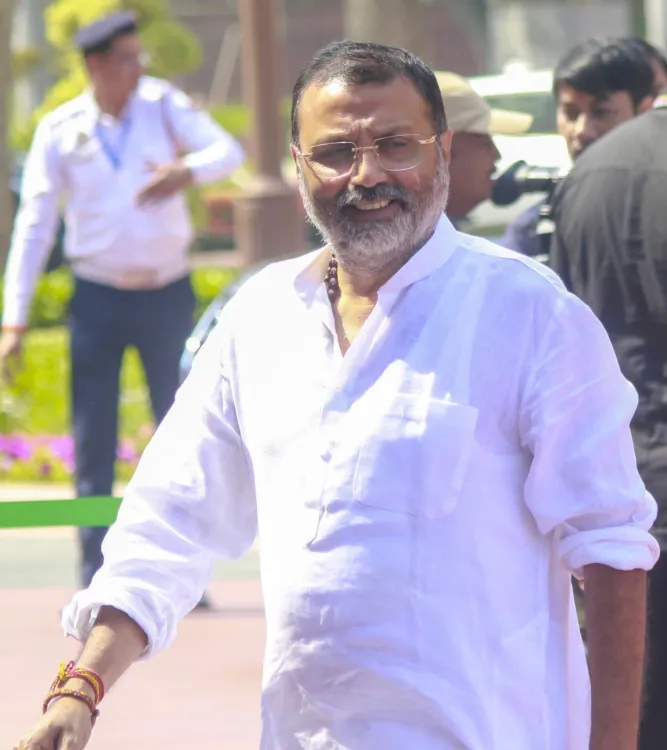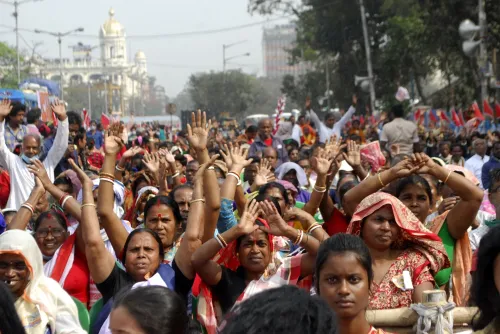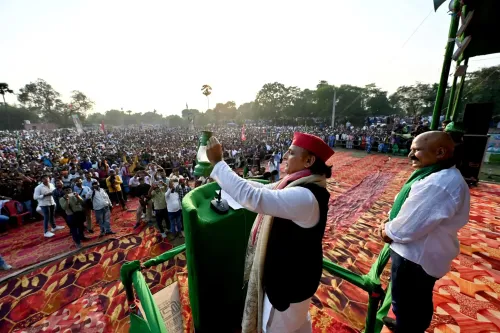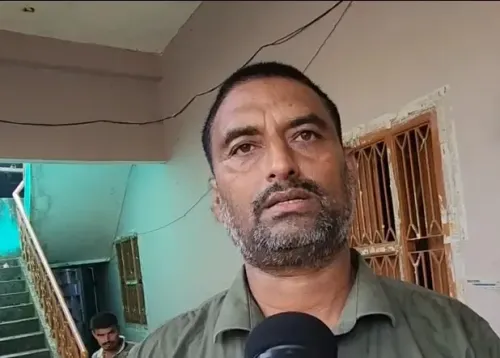Did the SC Dismiss the PIL Against Nishikant Dubey Over His Remarks on the Judiciary?

Synopsis
Key Takeaways
- The Supreme Court dismissed a PIL against Nishikant Dubey.
- Dubey's comments were deemed provocative and scandalous.
- The case highlights tensions between political speech and judicial respect.
- Advocate Vishal Tiwari filed the PIL to protect judicial dignity.
- The Supreme Court will issue a short order on the matter.
New Delhi, May 5 (NationPress) The Supreme Court declined to accept a public interest litigation (PIL) concerning the "contemptuous actions" of BJP Lok Sabha member Nishikant Dubey, who has been accused of "scandalising" the highest court and the Chief Justice of India (CJI).
A bench consisting of CJI Sanjiv Khanna and Justice Sanjay Kumar remarked, “We will issue a brief order. Although we will not entertain the plea, we will express our views in a short order.”
The petition alleged that Nishikant Dubey, representing Jharkhand’s Godda constituency, made a "provocative, hateful, and scandalous" statement against CJI Khanna and the judicial institution.
In an interview, Dubey claimed that "Chief Justice of India Sanjeev Khanna is responsible for all the civil wars occurring in India" and asserted that “only the Supreme Court is to blame for provoking religious conflict in this nation."
"The entirety of his interview contains derogatory remarks towards the judiciary and the Supreme Court. Such statements constitute an offense under BNS and Section 15 of the Contempt of Courts Act, 1971," the plea, submitted by advocate Vishal Tiwari, indicated.
The PIL underscored the necessity of safeguarding the dignity of the Supreme Court and its judges, urging the court to employ its powers under Article 129 of the Constitution of India (the authority to punish for self-contempt).
Previously, the Supreme Court had permitted advocate Tiwari to submit a new petition after he sought consent to amend the plea in light of the "serious statements made against the Chief Justice of India".
"You should file a new petition," a bench led by Justices Surya Kant and N.K. Singh advised, stressing that the claims in the petition should not compromise the "dignity and decorum of the institution."
The earlier PIL called for the establishment of a five-member judicial inquiry commission, headed by a retired apex court justice, to investigate the violent protests that erupted against the Waqf (Amendment) Act, 2025 in Murshidabad, West Bengal.









